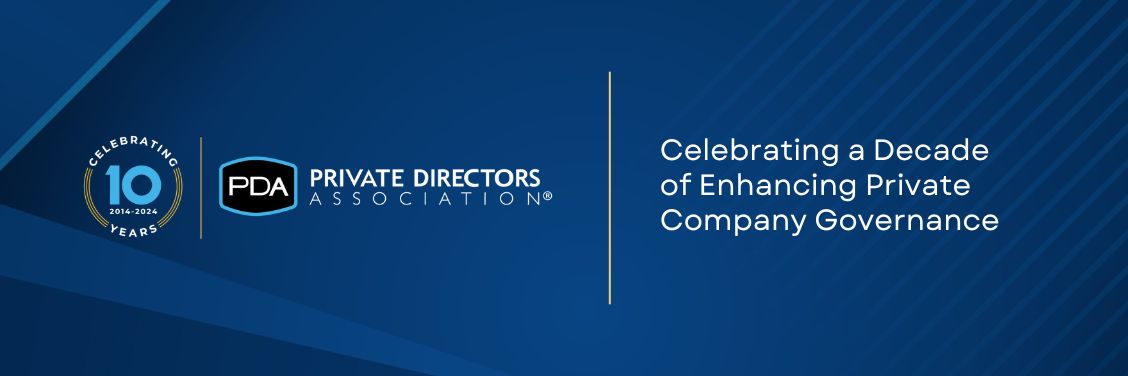Board Governance Insights Blog

The contemporary business landscape is a dynamic arena where success is not merely a destination, but an ongoing journey marked by ever-evolving market dynamics, shifting customer preferences, and relentless competition. As such, boards of directors (BODs) and the organizations they support need more than traditional strategies and decision-making processes. They require a guiding force to help them set the organization’s future direction.

Questions to Ask in the Boardroom
- What would be the benefit to the board and the members to have different nationalities on a board?
- How has organizational hierarchy prevented the diversification of boards, and how could a well-designed organizational hierarchy support board diversity?
- Addressing physically challenged people is the new language. What do board members need to know about old and new baselines so they can respectfully invite physically challenged people to be on the board?
Nationality
Organizations and boards are beginning to realize that in order to be competitive in the work market, they must recognize the need to encompass customers of many nationalities with distinct cultural backgrounds. Members of businesses need to speak about, become aware of, and know what is needed to support various nationalities in their work environments. This is also true of board members who have oversight of these organizations.

The prospect of a successful exit represents not just a financial milestone but a testament to the strategic acumen embedded within a company's DNA. The Board of Directors, with its collective wisdom and foresight, plays a pivotal role in steering a company towards such an outcome. Specifically, board members with a background in post-merger integrations, marketing, legal, and finance bring invaluable insights that can make a company not just ready for an exit but desirable to the best suitors.

Questions to Ask in the Boardroom
- As board members, what do you know about gender issues such as gender identity and expression, which relate to how people see themselves?
- What are the facts about the number of women that are on boards today?
- Are white males an asset to diversity initiatives, and what will they need to learn to utilize their position and knowledge to help diversify boards?
Introduction
As a consultant for organizations and boards, I combined the old baselines identified and developed new baselines. In 2002, Frederick A. Miller and Judith H. Katz wrote the book, “Unleashing the Real Power of Diversity”, San Francisco, Berrett-Koehler Publishers, Inc, pages 82-94, they gave a more limited version of the old baselines and addressed the new baseline in the nine areas. I have combined my list with their list since it is a more accurate way to assess a board or organization’s composition.

Those with an investing background can help in the areas of strategy, capital allocation and the CEO relationship.

There’s a New Cyber Sheriff in Town
“Data protection” is an umbrella concept that incorporates both cybersecurity and data privacy. The European Union has been the leader in advancing this concept first with its Data Protection Directive and now with its General Data Protection Regulation. The influence of these laws on the U.S. has been profound. Recently, the SEC issued guidance for publicly-traded companies mandating, among other things, notification of data breaches within four days and publication of the company’s cybersecurity risk management processes. Such national-level breach notification mandates have appeared in other contexts in the U.S. as well as the EU. Moreover, the advent of generative artificial intelligence has greatly amplified the power of cyber threat actors. Private companies that conduct business with public companies or may merge with a public company will likely wish to adhere to these standards as well. Overall, data protection is now a board-level matter.

As board members, we grapple with formidable challenges in overseeing AI governance to ensure responsible and ethical implementation. Instances of biases and discriminatory outcomes in AI systems, particularly in hiring and financial processes, demand our attention to uphold fairness. The escalating complexity of AI decision-making processes raises concerns about accountability and transparency, necessitating our proactive addressal. Recognizing the urgency in navigating data privacy challenges to comply with regulations and prevent potential misuse of personal information, we must align our AI strategies with evolving global legal frameworks to avert legal repercussions and reputational risks.

Chief security officers must communicate with the Board in a risk-focused, business-aligned, and data-centric manner to inspire confidence in management.

The Consequences of the OpenAI SAGA Continue to Evolve
There has been a lot of news about OpenAI in the past few months.
The three objectives of this blog are: to 1) share the extraordinary risks of AI; 2) give a little history on the company OpenAI, as well as the stunning ouster and reinstatement of their CEO; and 3) most importantly, explore best practices for board members in case they encounter a situation similar to the ones faced by OpenAI’s board. We'll focus on two key aspects of board governance: first, when the board feels that communication from the CEO is not consistent and hampers their ability to fulfill their responsibilities; and second, the considerations involved in evaluating the removal of a CEO from office.

Commemorating a Decade of Enhancing Private Company Value
Chicago, Illinois, Feb. 13, 2024 – The Private Directors Association (PDA), the only national association dedicated to improving private companies' growth and sustainability through board governance, is proud to announce the 10th anniversary of its founding. Established in 2014, PDA has flourished into a burgeoning national ecosystem, counting over 3,300 business executives, corporate members, and sponsors whose shared mission is to advocate for excellence in private company board formation and governance practices.
Reflecting on the organization's accomplishments, Elaine Eisenman, PDA's Board Chair, remarked, "I am honored to chair the PDA Board of Directors during this landmark year in PDA's history. Since our inception in 2014, we've strived to serve private companies across the globe with the resources to sustain their growth through excellence in board governance practices. The Private Directors Association extends heartfelt gratitude to the founding members whose vision and dedication paved the way for our future success."

A Key Competency for Board and Advisory Directors
The ability to pose incisive questions is not merely a skill; rather, it is an art form. Used in company governance, it wields transformative influence over the trajectory and vitality of an organization. As a seasoned board director, I have borne witness to the profound impact that the art of questioning can have on steering effective decision-making, fostering transparency, and cultivating a culture of accountability and innovation. In this article, I seek to delve into the profound importance of mastering this art for board directors, drawing insights from the National Association of Corporate Directors (NACD) 2023 Blue Ribbon Commission Report, "Culture as the Foundation: Building a High-Performance Board."

Questions to Ask in the Boardroom
- How does your board handle discussions about age, race, or the LGBTQ+ community, since these groups help to diversify a board?
- What are old and new baselines for boards to consider about age, race, and the LGBTQ+ community as they diversify the board?
The Establishment of Old and New Baselines for Establishing Diversity on a Board
The original guidelines, or baselines, are described in a book where the authors address separate areas (Miller, F. A., & Katz, J. H. 2002. The Inclusion Breakthrough : Unleashing the Real Power of Diversity. San Fransisco: Berrett-Kohler Publishers). The book also addresses what have emerged as new baselines in these areas. I have used their descriptions as a starting point and expanded upon them based on my own professional experience to provide the description of old and new baselines that will follow in this article.

Wolfe’s proven success in transforming leadership approaches and perspectives promises to elevate the PDA Nashville Chapter to the next level of visibility and impact.
Nashville, Tennessee – January 30, 2024 –The Private Directors Association (PDA) is delighted to announce the appointment of Marc A. Wolfe as the President of its Nashville Chapter. With a rich history of leadership and a commitment to enhancing private company impact, Wolfe brings a wealth of experience and expertise to guide the Nashville Chapter to a level that matches the city’s growth.

Our world is experiencing the acceleration of systemic changes with unprecedented consequences to our capacity to make sense, know, and exert control over nature and one another.1 In January 2000, the late Stephen Hawking- who is regarded by many as one of the most impactful theoretical physicists of all time- stated that the “next century will be the century of complexity.”2 Today, we live in a hyper-connected world with unprecedented access to knowledge that fuels the perpetual creation of new technology, boundless choices, and unlimited possibilities. This change in dynamic directly affects boards of directors.

Questions to Ask in the Boardroom
- What do you know about Affirmative Action and what was the result of it?
- What were the concepts stated in Affirmative Action documents that would form a greater appreciation of identity groups such as age, race, gender?
Introduction
In this article, I will provide a brief summary of historical statements about Affirmative Action and references that offer more information on Affirmative Action. The concepts stated in the presidential orders were to establish a more equitable society and allow us to utilize the valuable human resources we have in the United States. When studied, Affirmative Action allows each of us to focus on promoting the human rights of all people in the United States.

In today's digital age, where every company increasingly relies on data and technology, the intersection of artificial intelligence (AI) and cybersecurity is a critical and evolving battleground. As organizations navigate the complex landscape of threats and vulnerabilities, the role of AI in enhancing cybersecurity is going to increase and as a result will impact private companies and their governance.

Research by Forbes shows that delivering messages via storytelling can be up to 22 times more memorable than merely relying on just facts. And that's the reason to have this educational conversation on the Five Cs of great storytelling. To get going, let’s take a walk through each of the Cs and consider the different process steps that transform the delivery of a message through the art of great storytelling.

In the complex and ever-changing world of business, private company boards of directors face a multitude of challenges, from navigating regulatory landscapes to mitigating emerging risks. In this dynamic environment, internal audit emerges as a critical asset, providing invaluable insights and guidance to enhance governance, strengthen operations, and achieve strategic objectives.

Consider that OpenAI’s ChatGPT is … barely a year old. Yet recently, there’s been tremendous focus on AI (Artificial Intelligence) and regulating it. The key question is what does, and what will, AI oversight mean to board members in the short and long term?


Questions to Ask in the Boardroom
- What are five values that are defined and utilized to support the board’s mission?
- How do board members identify their actions and behavior in the board meetings that show appreciation for the board values?
Taking the Next Step
I have another exercise I do with boards that continues the process of bringing members together by helping them to coalesce around a common set of values. These board values are based on board members first identifying their five most important personal values and then identifying a set of shared values from everyone’s personal values meant to guide the actions of the board.
- Page 1 of 3
- << first < Prev 1 2 3 Next > last >>





















